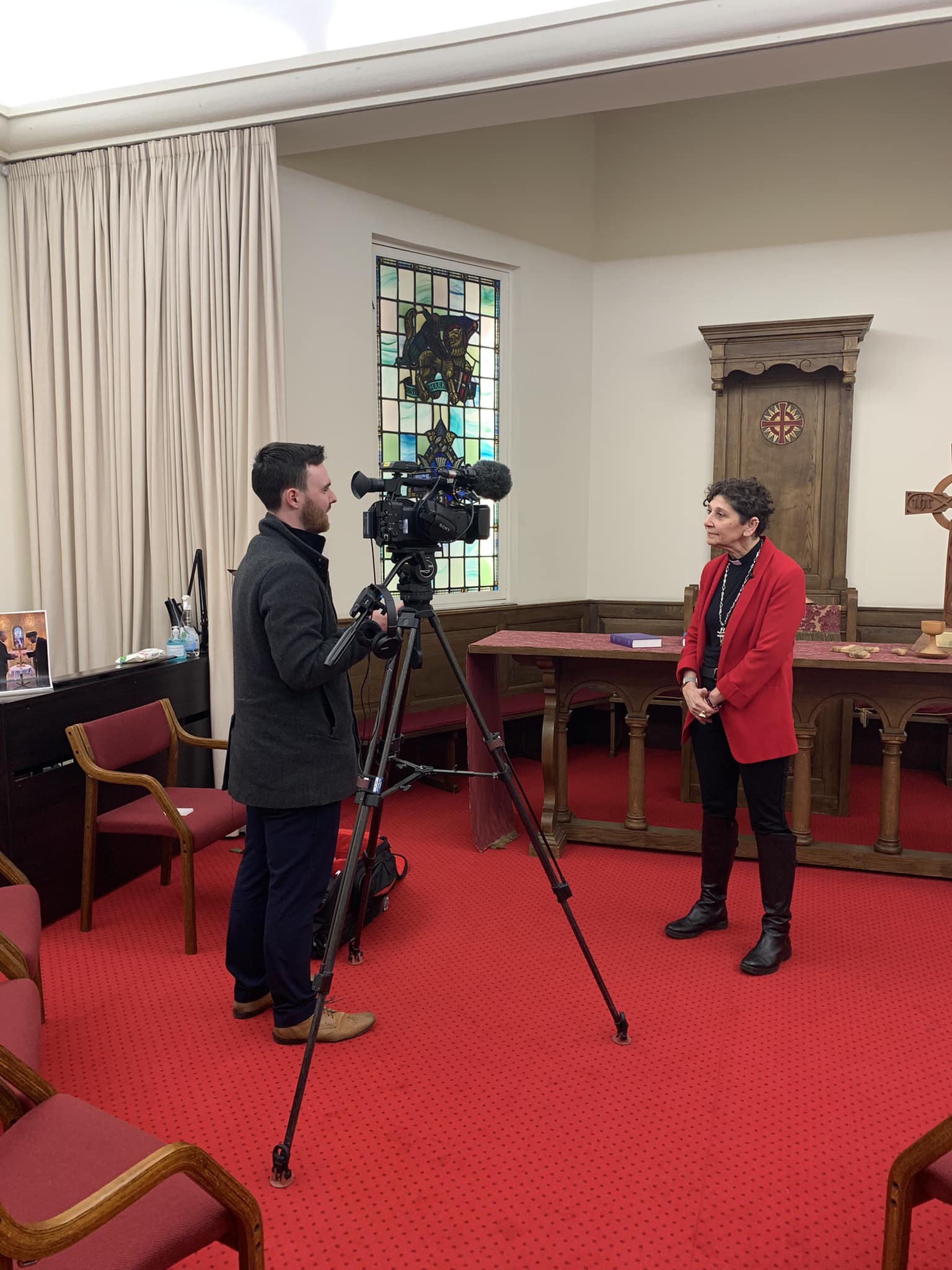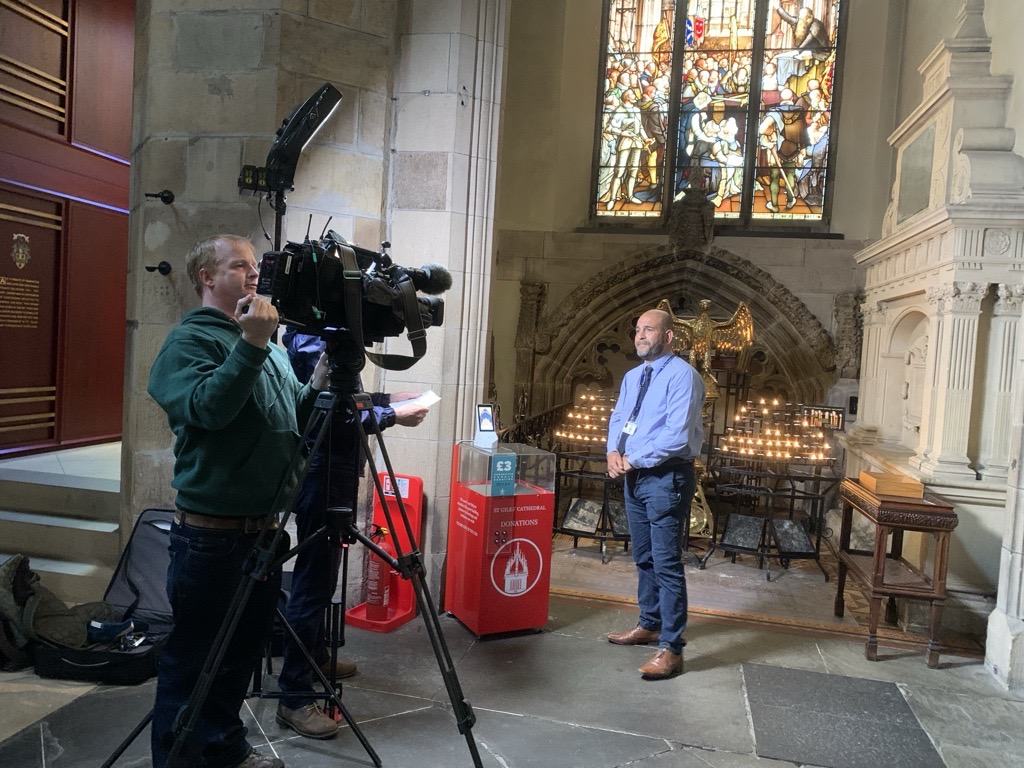Working with the media
Why is the media important?

Good news stories help raise the profile of the Church and show how Christians are making an enormous contribution to local communities across the country.
Most communities have at least one local newspaper and/or local radio station where there are news reporters who will be interested in stories and events connected to your church.
What makes a good news story?
Something that affects a lot of people, or is moving, funny, out of the ordinary, brand new or particularly impressive.
Be objective: if you would read this story perhaps other people would enjoy it too.
Take a look at recent examples of stories featuring local ministers and congregations in our news section. Regularly reading the news stories produced by the Communications Department can help people understand how stories are put together and can provide ideas for similar opportunities to promote your church or congregation.
News releases
The simplest and most widely used method of communicating a story to the media is writing a news release. Be aware that if you send out a news release you must offer contact information and be available to answer follow-up questions.
Preparing a news release
The purpose of a news release is to alert a journalist to something that is happening and to interest them to the extent that they want to know more. This is something that any congregation can do, bearing in mind some simple rules:
Identify a newsworthy story. If you're doubtful, apply a simple test: be completely objective and, if you honestly think that reaction to your story would be, ‘So what?' don't send it. Wait until you have something more interesting and relevant to offer.
Be creative! Choose a heading that will catch the journalist's attention. Remember that you're competing with all the other news releases that will arrive on the same day.
The first 10 words of your release need to capture a reader's attention or you risk the rest of your story not being read and you will have wasted an opportunity.

Keep it short and simple and deal with the key facts. Don't use jargon. Who? What? When? Where and Why? are the questions that journalists will ask when putting together a story. You should aim to answer these questions in the first couple of paragraphs of your news release. If the media want to know more, a journalist will contact you.
Make contacting you easy. Add a full name and email and telephone number at the end of your news release. Select the best-informed person to be available for interview - whoever knows most about the particular story should be the contact. Ensure that they will be available to answer a call or reply to an email promptly. Delays in responding risk the story not being run.
If you are highlighting something that will take place in the future, make that clear and give the journalist as much notice as possible. Say if you are happy for a journalist and/or photographer to attend your event.
Be prepared to accept that, despite your best efforts, your story might not be used. There can be lots of reasons for this, most of them outwith your control. Of course, it's disappointing but don't let this stop you from keeping in touch with your local media.
If your story is published or broadcast, try to identify what it contained that attracted interest and bear that in mind when formulating future news releases.
A sample news release is available to download.
What to do if the media contacts you
Be polite and take a note of their full name and number/email address and the name of the publication or company that they work for.
Say you will call back as soon as possible.
Contact the Church Communications Team
Never say 'no comment' - it's best not to reject our right of reply.
Do not speak to journalists "off the record" - anything that is said to a journalist could end up in print, online or referred to in a broadcast report.
If you are asked to be a spokesperson for the Church, the General Assembly has agreed to a set of guidelines on who should speak for the Church in the department's policies and procedures. Please contact the Communications Department before agreeing to do this.
Social media
Social media is a great way to build a sense of community and help people stay up to date with news.
Read our social media guidelines for more information on creating and maintaining accounts on Facebook, Twitter, and Instagram.
Photography
A good photo can make or break a story. Top Tips for Photography: an introduction to best practice when taking photographs will help you improve your skills and knowledge when using photography.
Please be careful about sourcing images to use in your story. If someone else has taken a photograph that you want to use, then ensure you have their explicit consent before you proceed.
More help
If you require further advice then please get in touch with our team.